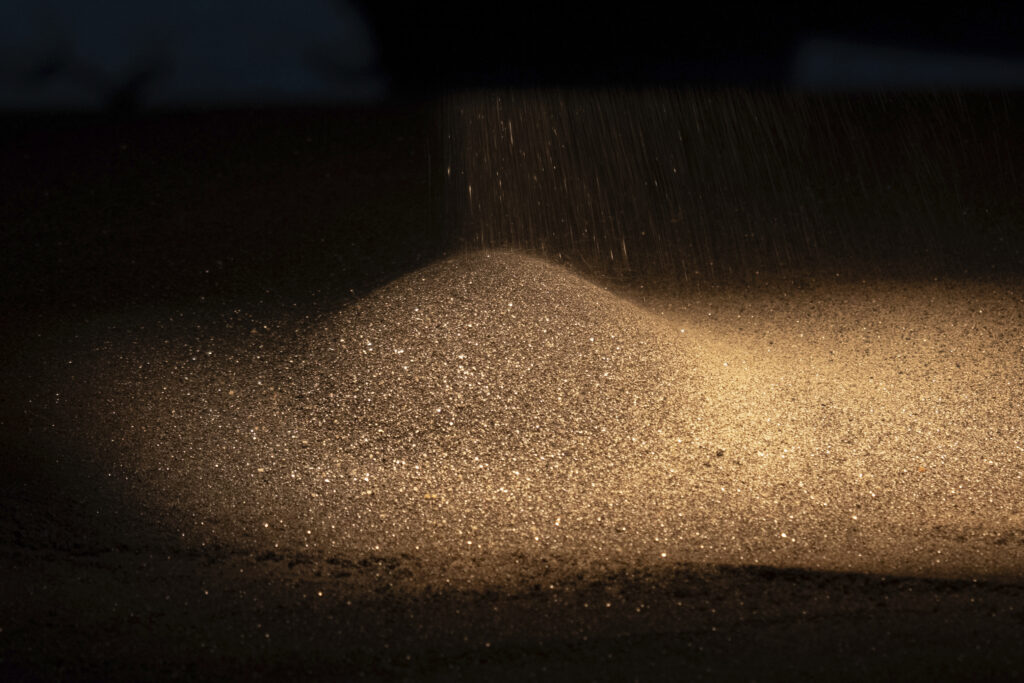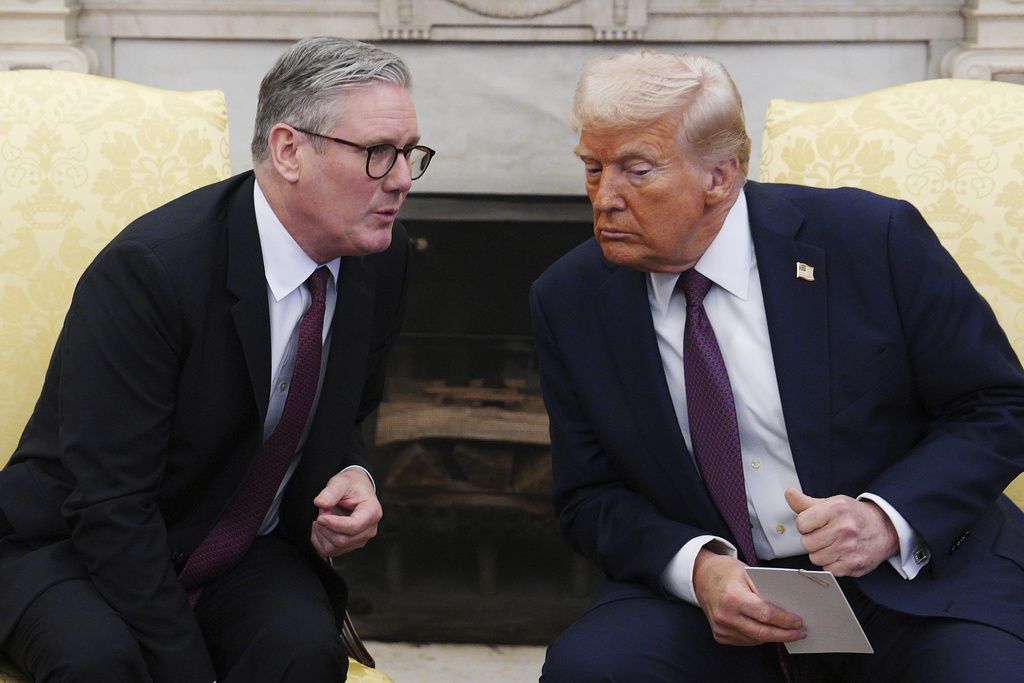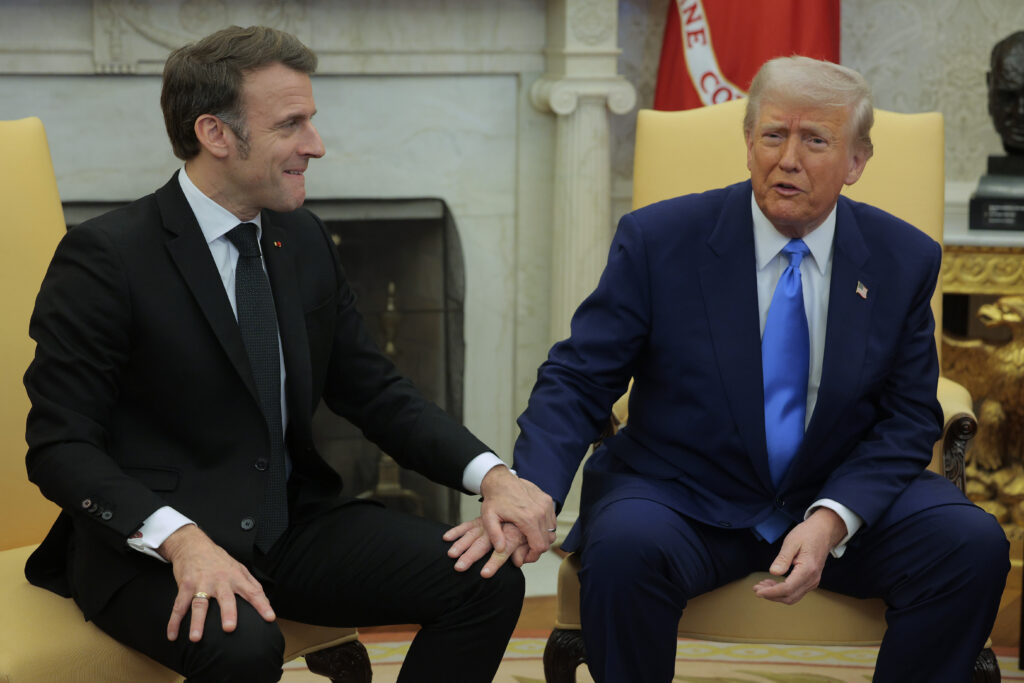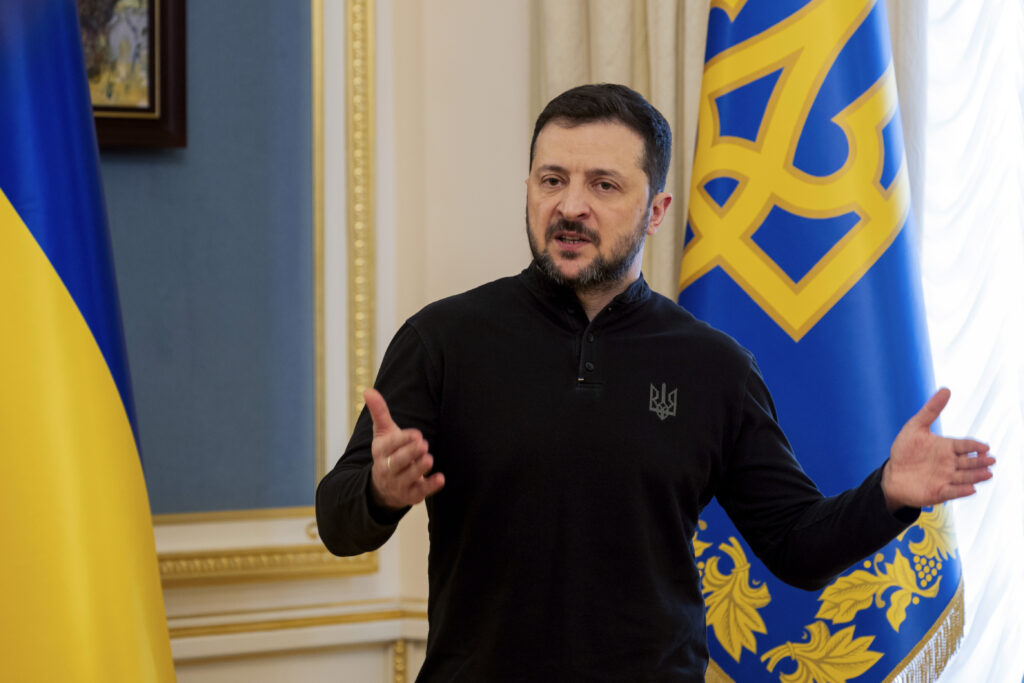Porcupine or Trip Wire? Trump and Zelensky Plot Ukraine’s Defense Strategy at Washington Today
Quill it work? The porcupine strategy involves making the country indigestible for the Russian bear.

When President Trump meets President Zelensky today at Washington, the two leaders will confront a strategic crossroads for Ukraine’s future — the “porcupine” strategy or the “human tripwire” strategy.
For 70 years on the Korean peninsula, a “human tripwire” — American soldiers on the ground — allowed South Korea to develop into an Asian powerhouse from an Asian basket case. For three generations, the leaders of North Korea’s ruling dynasty knew that an invasion of the South — and dead American soldiers — would draw Washington into the fight.
Today, America and Ukraine are to sign a framework minerals agreement designed to draw American mining companies and billions of dollars into Ukraine. Refusing to give Ukraine security guarantees, President Trump argues that Russia will respect a human tripwire of American investors and mining engineers.
President Trump “believes that massive American financial investments inside Ukraine will keep Putin away because the assumption is that it will be defended by American military might,” Canadian business scribe Diane Francis writes yesterday. However, Russia and Russia-occupied Ukraine are littered with oil, gas, and green energy projects that American investors surrendered outright or were forced to sell for pennies on the dollar.

By contrast, a “porcupine” strategy advocates arming Ukraine to the teeth. This would make the country indigestible for the Russian bear. Two porcupine countries, Israel and Taiwan, have flourished without American boots on the ground. Both countries are heavily armed with American weaponry and also rely on their own cutting edge arms industries.
The senior Republican senator of South Carolina, Lindsey Graham, is an expert on reading Republican moods in Washington. Two weeks ago at the Munich Security Conference, he grabbed Mr. Zelensky by the shoulder and asked reporters: “How do you deter Putin? You arm this guy to the teeth.”
This week, the British prime minister, Sir Keir Starmer, and President Macron made separate pilgrimages to Washington to lobby President Trump for a “reassurance force,” or military backstop, for Ukraine. Public pleasantries aside, Mr. Trump made it clear that he is not budging. “On NATO, that’s not going to happen,” he said yesterday at a joint press conference with the British leader.

After listening to Mr. Macron make a pitch for American help, Mr. Trump said at his first cabinet meeting: “I’m not going to provide security guarantees.” Echoing what he told the French leader, he said: “We’re going to have Europe do that, because we’re talking about Europe as the next door neighbor.”
So far, Britain, France, and Turkey have said they are open to the idea of posting their soldiers in Ukraine to enforce an armistice. Yesterday the British leader told reporters at the White House: “I’m clear that the UK is ready to put boots on the ground and planes in the air to support a deal, working together with our allies, because that is the only way that peace will last.”
France’s BFM TV reports that Monsieur Macron had to persuade the American president to receive Mr. Zelensky in Washington for today’s signing ceremony. On Wednesday, Mr. Trump said: “I hear he’s coming on Friday. Certainly, it’s OK with me if he’d like to.” After lobbying heavily for today’s White House meeting, the Ukrainian leader told reporters at Kyiv: “My first question is: Will America stop military aid?”

Given Mr. Trump’s apparent disinterest in Ukraine’s fate, Europe’s fall back position is the porcupine strategy. Seeing Ukraine as Europe’s dike against Russia’s westward expansion, country after European country this week announced large weapons shipments to Ukraine. Support is growing in Europe for paying for arms with $300 billion in Russian government reserves that European banks froze in the days after Russia’s invasion of Ukraine.
However, in the 30 years that followed the Cold War, Europe allowed its armaments industry to atrophy. In a sign of the times, Europe’s top ammunition maker, Rheinmetall, told Reuters this week that it is repurposing two German automotive plants to make defense equipment.
If Ukraine’s supporters have the cash to spend, American defense manufacturers would benefit. In a study of the first two years of American military aid to Ukraine, American Enterprise Institute fellow Marc A. Thiessen calculated that “almost 90 percent” went to American manufacturers. America’s defense manufacturing is concentrated in red states.

“While the minerals deal brings uncertain benefits to the US, arms purchases by Europe and Ukraine bring real jobs to the US,” London-based Ukraine-Russia analyst Timothy Ash writes this week. “The best long term security guarantee for Ukraine is ensuring Ukraine gets the weapons it needs to defend itself, a kind of State of Israel style guarantee.”
Moving preemptively, Russia’s foreign minister, Sergei Lavrov, warned Wednesday against allowing Ukraine to be “pumped up with weapons again.” He denied Russia endorsed a plan for European peacekeeping troops in Ukraine, saying: “Nobody asked Moscow about this.”
Alarmed by the British and French visits to the White House, President Putin warned yesterday that he would use Russia’s diplomatic and intelligence services to stymie efforts by “Western elites” to sabotage the budding rapprochement between Russia and America. He was addressing Russia’s FSB security service, the successor to the Soviet-era KGB.

